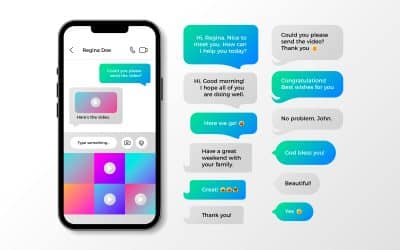The demand for customized, secure, efficient, and effective healthcare solutions has led to the popularity of custom healthcare software. The top trends in healthcare software development illustrate the convergence of technologies set to transform how healthcare is delivered.
These developments, which span from the application of AI and Blockchains to the development of telehealth solutions, reflect the industry’s ability to evolve and adapt to patients’ changing demands constantly. Looking at the current trends shaping healthcare software development by 2024, we anticipate a significant impact on the health industry.
The key elements are precision medicine, user-centric design, and seamless integration with new technologies. This blog highlights the significant developments that will influence healthcare software development and create a more sophisticated, connected, interconnected, and patient-centric healthcare system.
Understanding Healthcare Software Development
Healthcare Software As a Service seeks to increase service efficiency, accuracy, and accessibility. The field integrates software engineering concepts and domain-specific expertise to tackle the specific challenges unique to this industry.
Healthcare software developers and their industry are concerned about the security of data and compliance with health regulations. Electronic Health Records systems (EHRs) are essential in improving care coordination among healthcare providers. They facilitate digital storage and retrieval of patient information.
Software should be available to many users, including patients, healthcare administrators, and healthcare professionals. Testing and constant updating are vital to preserve software quality and allow it to adapt to the changing healthcare requirements. Software for healthcare is developed to enhance the quality of care for patients and to streamline processes.
Key Features of Custom Healthcare Software Development
The health app industry incorporates numerous key features that meet evolving and challenging requirements. These features help improve patient healthcare, improve workflows, increase the security of patient data, and improve efficiency.
Electronic Health Records and Health Information Exchange
EHRs form the basis of healthcare software. The EHR systems can digitize, centralize, store, and digitize patient information, including medical histories, diagnoses, medications, and treatment plans. EHRs facilitate collaboration between healthcare professionals by providing a full view of the patient’s health.
Health Information Exchange allows for the safe exchange of data regarding patients between healthcare providers, thereby promoting interoperability.
Clinical Decision Support Systems (CDSS)
CDSS incorporates patient and clinical data to provide healthcare professionals with an actionable view at the moment of treatment. The system assists in diagnosing disease, recommends appropriate treatment, and alerts doctors of potential issues like allergic reactions or drug interactions. CDSS enhances the quality of medical decisions, reduces errors, and promotes evidence-based clinical practice.
Telemedicine and Virtual Care Platforms
Telemedicine is a way to conduct remote consultations and monitor patients. The platforms permit interaction between healthcare professionals and patients, improving accessibility to treatment while reducing the number of in-person appointments. Telemedicine solutions can be found in integrated video conferencing tools, secure messaging, and remote monitoring.
Appointment Scheduling and Patient Portals
This feature simplifies the process of booking appointments for both patients and healthcare professionals. Patients can book appointments through patient portals, access their medical records, and securely communicate with healthcare specialists. The features improve patient engagement and satisfaction and provide convenience.
Mobile Health (mHealth) Applications
The Healthcare Software Development Companies develop mobile apps that puts patients’ health at their fingertips. mHealth applications offer a variety of features, such as remote monitoring, medication adherence reminders, and wellness monitoring. Patients can be active in their health and encourage preventative care.
Interoperability Standards
The exchange of information between healthcare systems has to be seamless. Healthcare software complies with standards established by industry professionals. These standards permit different applications to interact with each other, encouraging the sharing of information and coordination.
Data Security and Privacy Measures
Due to sensitive healthcare data, solid and reliable secure features are crucial. Healthcare software utilizes encryption, authentication, and access control procedures to secure information about patients.
Diagnostic Imaging and PACS
Software designed for healthcare usually includes modules for managing diagnostic imaging, including X-rays and MRIs. PACS assists in data storage and retrieval as well as sharing images. This helps improve collaboration between radiologists, physicians, and other healthcare professionals.
Laboratory Information Management Systems (LIMS)
LIMS handles lab workflows such as tracking sample samples, ordering test results, and reporting on results. It increases the efficiency and accuracy of lab processes and offers timely diagnostic information.
Population Health Management
Healthcare software typically includes facilities that enable organizations to monitor the health of particular patients. This involves identifying populations at risk and implementing prevention and strategy.
Billing and Revenue Cycle Management
Software designed for healthcare should provide administrative efficiency. Revenue cycle and billing features can automate financial procedures like invoicing, processing insurance claims, and tracking payments. This helps reduce billing errors and accelerate reimbursement, improving healthcare institutions’ financial stability.
Health Analytics and Reporting
Healthcare software includes data analysis and reporting tools, enabling a deeper understanding of large data sets. These tools support improving quality, regulatory reporting, and evidence-based decision-making.
Remote Patient Monitoring
Remote monitoring of patients permits data collection on health outside of traditional healthcare settings. Wearable sensors and devices that measure vital signs allow healthcare professionals to monitor chronically sick patients remotely.
Designing User Interfaces (UI) and User Experiences (UX)
Software designed for the healthcare sector should have user-friendly and intuitive interfaces to software. A well-designed user interface increases adoption and cuts down on training duration. It also improves satisfaction among health professionals and patients.
Training and Support Modules
Many instructional modules and features provide continuous assistance to ensure a successful introduction of software used in healthcare. These help health professionals and personnel understand the software and fix any issues.
Benefits of Investing In Healthcare
When considering customized healthcare software development, you must be clear about your goals, competitor research, development process, and end-user market. So, collaborating with experts in the field or the top Healthcare Software Development Companies is crucial in developing successful healthcare software and achieving your clients’ needs.
Enhanced Data Security
The healthcare industry produces vast quantities of sensitive information through numerous channels and platforms each day. Therefore, ensuring this information is safe and secure from unauthorized access is crucial.
To achieve this, every cloud service and email service provider chatbot, search engine website, and app strives to become HIPAA-compliant, which provides the highest levels of security for healthcare providers’ data.
Excellent Patient Care
With AI-driven health software, patients can get the most effective care and advice with just a click. Virtual consultations in healthcare have revolutionized how patients get medical treatment, even in times of emergency.
Increased Efficiency
Customized software can significantly increase your business’s efficiency and effectiveness. The latest software development and delivery technology will lead to faster processes, freeing your team’s time to adjust to routine healthcare operations. This means that your business can easily focus on achieving its primary objectives and goals.
Greater ROI
A presence on the internet through websites can assist healthcare providers in attracting many more patients, resulting in an increase in returns on investments (ROI). This is especially crucial in the COVID-19 pandemic, in which technology played an essential role in enabling patients to receive convenient treatment from the comfort of home.
Custom software is an excellent technique for using the latest technology within healthcare to improve ROI since it permits customization and innovation in the healthcare industry. Healthcare organizations that invest in it will succeed by providing the best treatments and producing a more significant ROI due to technological advancements and the ability to customize.
How Does Custom Healthcare Software Solve Problems Associated With Traditional Healthcare System
Before hiring a custom-designed healthcare software development company to develop your healthcare software, you need to decide what value it will provide. So, here are the top issues in our healthcare system that you can resolve by implementing custom-built software.
Overburdened Staff
Healthcare software-as-a-solution allows staff to enjoy time free to unwind by helping staff with manual and repetitive report writing and data entry. On the other hand, it delivers benefits through high precision and productivity.
Labor Shortage
The software assists administrative and clinical staff in their daily duties, initially reducing their time requirements. This allows them to help more patients and complete more tasks, ultimately decreasing the requirement for new team members.
Poor Patient Experience
Software that allows clinical and administrative staff to monitor every patient’s information ensures the perfect combination of speedy and quality care, which improves the patient’s outcomes and experience.
Extensive Wait Time
Software that improves processes in healthcare settings allows doctors or other employees to reduce patients’ hospital stays, enabling more patients to receive treatment in the time frame they need.
Must Watch Latest Trends In Custom Healthcare Software Development
Now, let’s take a look at the top recent custom healthcare software development trends.
Digitalization
Digital transformation is a critical shift in healthcare characterized by the use of digital technology to improve different aspects of the business. This transformation aims to improve the patient experience, streamline the operational process, and improve overall efficiency in healthcare organizations. Digital technology will allow healthcare providers to provide patients with the most personalized and efficient treatment. This will speed up internal processes, reducing the amount of paperwork required, reducing errors, and increasing overall operational efficiency. Implementing digital technology helps healthcare providers make data-driven decisions, allowing them to make educated decisions based on extensive insights.
Telemedicine and Remote Patient Monitoring
In recent years, telemedicine and remote monitoring for patients have become critical elements of healthcare, changing the patient experience through cutting-edge software solutions. This change has been most noticeable in the aftermath of the pandemic worldwide, and healthcare professionals are seeking more effective and safer methods to provide medical services.
Telemedicine has a myriad of advantages that have dramatically increased the quality of care for patients. One of the most significant advantages is its ease of use. Patients can consult with health professionals from the comfort of their homes, avoiding the necessity to travel and decreasing the time it takes to wait. This service is particularly beneficial for patients suffering from chronic ailments or mobility issues living in regions with limited access to healthcare services
Patient-Centric Approach
There is a shift to a more patient-focused approach to healthcare that emphasizes creating customized and user-friendly services. Software solutions that are customized to meet patients’ needs align with this shift and aim to cater to the specific demands of individual patients.
The development of customized healthcare software in the USA is focused on tailoring the experience for each patient, ensuring their particular preferences and needs are considered. Patient-centric solutions aim to increase patient engagement by providing accessible and user-friendly interfaces.
They also encourage patients’ involvement during their healthcare journey. The shift to patient-centricity allows patients to participate actively in their health and treatment decisions.
Interoperability and Data Exchange
A speedy data exchange between healthcare providers is vital to comprehensive patient healthcare. Interoperable custom solutions are essential to creating seamless communication and collaboration between healthcare organizations. Interoperable solutions help facilitate the seamless data flow between different healthcare systems and ensure that the relevant information is available anytime.
Healthcare organizations collaborate better with interoperable systems, which can result in improved outcomes and care coordination. Interoperability helps create an increasingly connected healthcare system that allows data to be shared securely and efficiently.
IoT In Healthcare
The introduction of the Internet of Things (IoT) into healthcare has brought a new age of efficiency and connectivity, changing how patients receive care in unique ways. IoT devices have allowed real-time and continuous monitoring of patients and enable health professionals to gather vital information from a distance.
The constant flow of data helps detect health problems, allows for timely intervention, and improves patient outcomes. IoT devices can also help patients participate actively in healthcare by encouraging monitoring and a healthier lifestyle.
Artificial Intelligence Is Machine Learning
Artificial Intelligence is expected to transform healthcare. Customized solutions use these technologies to aid in advanced analytics that can be used for diagnostic assistance and the creation of customized treatment plans.
AI and ML provide predictive analytics, allowing healthcare professionals to detect potential problems, intervene promptly, and improve patient outcomes. AI-powered diagnostic tools aid in more precise and quicker diagnosis, increasing the efficiency of healthcare services. Custom-designed healthcare software uses AI and ML to study specific patient information and tailor treatments to those features and requirements.
Edge Computing For Real-Time Processors
In healthcare, Edge computing is gaining popularity. This means processing data closer to its source rather than relying upon cloud-based servers. This trend is especially applicable to applications that require real-time processing, like IoT and remote patient monitoring.
Enhanced Diagnostics
Customized solutions will incorporate advanced diagnostic tools that aid in rapid detection and better diagnosis. Healthcare software customized for custom uses advanced imaging technology and analysis tools to improve diagnosis accuracy. The enhanced diagnostic capabilities aid in rapidly detecting medical conditions, allowing for quicker treatment initiation. Incorporating AI within diagnostic instruments gives health professionals additional aid in understanding the vast medical information.
Personalized Treatment
Software development for healthcare plays a crucial role in enabling individualized treatment plans based on patient information. This method assures that treatment plans are personalized to every patient’s unique requirements and needs. Custom solutions use patient data to create tailored treatment plans that consider specific factors like lifestyle, genetics, and medical background.
Personalized treatment plans help achieve greater effectiveness since they are designed specifically to address each patient’s individual requirements.
Intelligent Imaging and Radiology
The integration of radiology and intelligent imaging solutions will increase diagnostic capabilities. Custom software can facilitate more excellent image analysis and more advanced techniques, resulting in quicker and more precise diagnoses. Intelligent imaging tools can provide more precise diagnostic results, resulting in faster and more accurate diagnoses. The results of intelligent imaging are easily integrated with EHR systems, providing a correct and complete health record for patients.
Virtual Assistance and Chatbots
Chatbots and virtual assistants are becoming a part of healthcare communication. Custom solutions will further improve the capabilities of these tools, offering better-informed and contextually aware virtual assistants that can assist medical professionals and patients.
Intelligent chatbots provide 24/7 support, answering patient questions and supplying information beyond regular office hours. Healthcare software explicitly developed for custom needs ensures the virtual assistants’ capabilities are contextually aware of their personalized responses based on the individual patient’s information and needs.
Healthcare Operations and Resource Management
Effective operations and efficient resource management are crucial for healthcare facilities. Custom-designed solution software will always solve these issues by optimizing processes and allocating resources for greater efficiency.
Customized solutions improve healthcare workflows by reducing bottlenecks and improving overall efficiency. A well-organized resource management system ensures that healthcare institutions efficiently allocate staff equipment, personnel, and other resources.
Final Thoughts
The development healthcare software is causing substantial improvements in the patient’s healthcare. Through developments like remote monitors, data management, and the latest technologies like AI and IoT, healthcare is now more accessible and personalized. These innovations aren’t only trends but fundamental changes in how healthcare is provided. With these innovations, healthcare providers can increase efficiency, enhance outcomes, and deliver better care to their patients. The constant development of software in healthcare suggests a positive future in which technology will be a critical factor in defining the healthcare experience for everyone.












